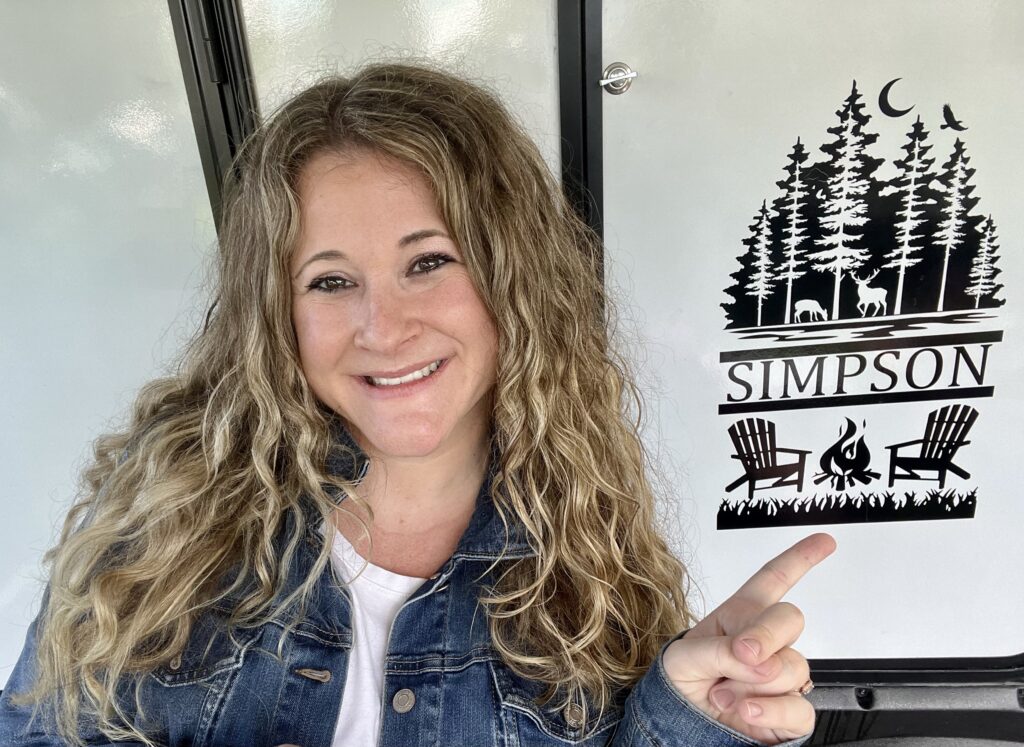As a mom, one of the most challenging things we can face is advocating for ourselves with physicians when it comes to our health. This also goes with advocating for children – both while pregnant, and afterwards (aka life). When we suspect something is wrong, it can be frustrating and frightening when we feel like our concerns are not being taken seriously. However, it’s important to remember that we are our children’s biggest advocates, and it’s our job to make sure they receive the best possible care. As a #momblogger I’ll share my own experiences and provide some tips for how to advocate for yourself and your children when interacting with physicians, especially when seeking a diagnosis. Shameless plug – in my Course, I provide scripts for these tough conversations that are part of the downloads section that go into depth how to navigate some of these specific instances.
If you know me personally, you know that I am PASSIONATE. And when it comes to my health and the health of my babies, if needed, I will #MOMROAR to the mountaintops if I have to.
Here are my top high level recommendations for how to navigate these tough situations and conversations when you are talking to your healthcare provider team. Advocating for ourselves with physicians 101:
- Trust your instincts:
The first thing to keep in mind is that as a parent, you know your child better than anyone else. What is it I always say? Oh yeah: YOU ARE THE EXPERT ON YOUR CHILD! If you suspect that something is wrong, don’t dismiss your instincts. Trust that you know your child’s behavior and patterns better than anyone else, and don’t be afraid to speak up if you feel like something is off. Many times, a mother’s intuition can be the key to getting a proper diagnosis. - Document everything:
When seeking a diagnosis, it’s important to document everything. Keep a journal of your child’s symptoms, including when they occur, how often, and their severity. Again, I provide a template for this in my Managing Feeding Issues course that I have found so helpful when coming prepared to these types of meetings and conversations. This information can be invaluable when speaking with physicians, especially if you’re seeing multiple doctors or specialists. It’s also important to document any medications or treatments that have been prescribed, as well as any changes in your child’s behavior or symptoms after starting them. For the course, I talk about issues specifically related to feeding – reactions orally (aversion, throw up, reflux, choking), skin reactions and issues like rashes, hives, eczema, diaper and bowel movement tracking (including color, consistency, frequency), and more. - Do your research:
Before your appointment, do your research. Look up your child’s symptoms and possible diagnoses. This information can help you understand what to expect during your appointment and help you ask more informed questions. However, it’s important to keep in mind that not all information found online is accurate, so it’s important to verify the sources and discuss any concerns with your doctor. hint – take my course to learn to identify! - Communicate effectively: When speaking with physicians, it’s important to communicate effectively. Be clear and concise about your concerns and your child’s symptoms. Don’t be afraid to ask questions or to ask for clarification if something doesn’t make sense. It’s also important to listen carefully to the physician’s responses and to ask follow-up questions as needed. Effective communication is key to getting the best possible care for your child.
- Be persistent: If you feel like your concerns are not being taken seriously, don’t give up. Be persistent in seeking a diagnosis. Request a referral to a specialist if needed, or seek a second opinion if you’re not satisfied with the care your child is receiving. Remember, you are your child’s advocate, and it’s your job to ensure that they receive the best possible care.
- Advocate for yourself:
It’s important to remember that you also need to advocate for yourself (and child) when interacting with physicians. If you’re experiencing symptoms or concerns, don’t dismiss them or downplay them. Speak up and make sure that your concerns are heard. Don’t be afraid to ask for additional testing or to seek a second opinion if needed. - Educate yourself
When advocating for ourselves with physicians, it’s important to educate yourself about your rights as a patient. Familiarize yourself with your insurance coverage and your options for treatment. Research your healthcare providers and their track record. The more informed you are, the better equipped you will be to advocate for yourself and your child. This was huge for me when going through childbirth the first time. I DID NOT DO THIS!!! I did not know what my rights were, what the rules were, what I could say no to, what my options were, etc. and I truly believe that the unnecessary interventions and after effects changed the entire trajectory of my experience as a birthing person and caused a lot of avoidable PTSD in the process. I wish I would have done a better job educating myself and my partner on what our options and rights were. - Be respectful
While it’s important to be persistent in seeking a diagnosis, it’s also important to be respectful when interacting with physicians. Remember that they are professionals and that they are there to help you and your child. Be courteous and respectful, even if you disagree with their opinions or recommendations. Sometimes this is a tricky one for me to be honest. My #momroar doesn’t always land on the delivery. If you are like me, sometimes its helpful to bring a partner or other advocate into the situation to help with these tricky conversations, especially when the emotions are flying. In our family, this means my husband being the main representative in emergency situations like ER visits, because I cannot handle it with the stressors int he moment. - Seek support
Advocating for ourselves with physicians, especially when it’s your child’s health can be emotionally and physically exhausting. It’s important to seek support from friends, family, or a support group. Having someone to talk to and share your concerns with is critical. For me this was a partner, the allergy community, and a licensed therapist. Decide what that means for you, and make sure you are supported holistically as you navigate through the process.
Need more support and advise? Don’t hesitate to reach out to me directly or check out the course on my course page.
If you like what you’re reading, make sure to subscribe to the blog!
Follow us on Instagram & Pinterest here for more content like this!










